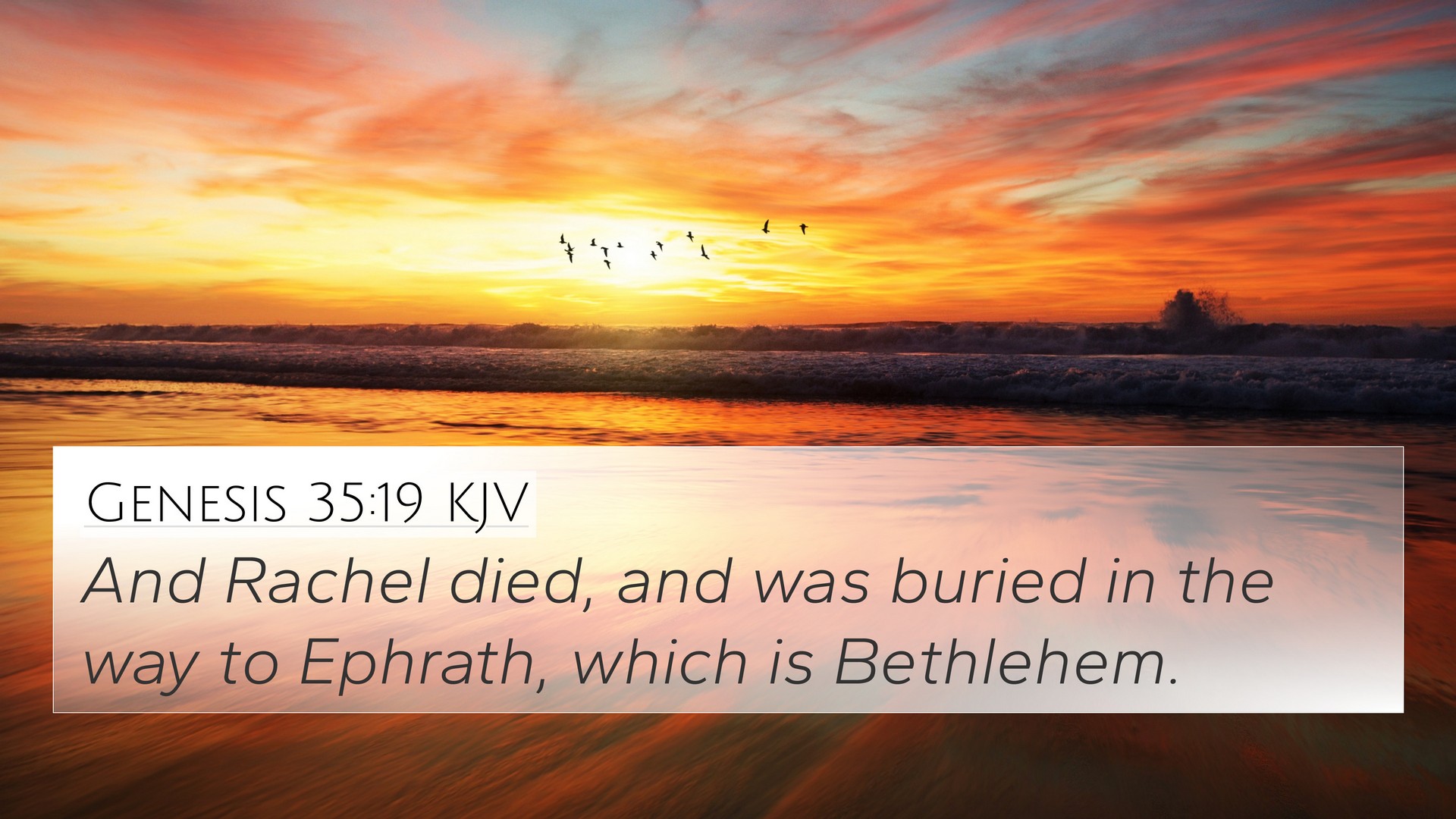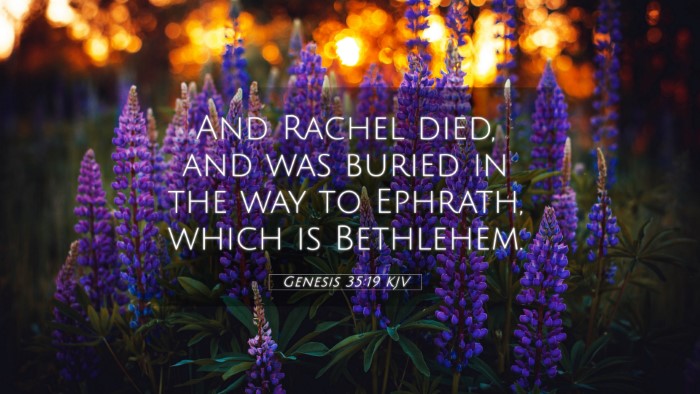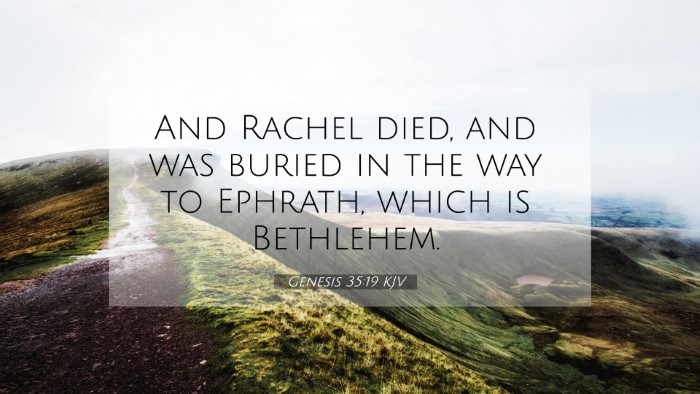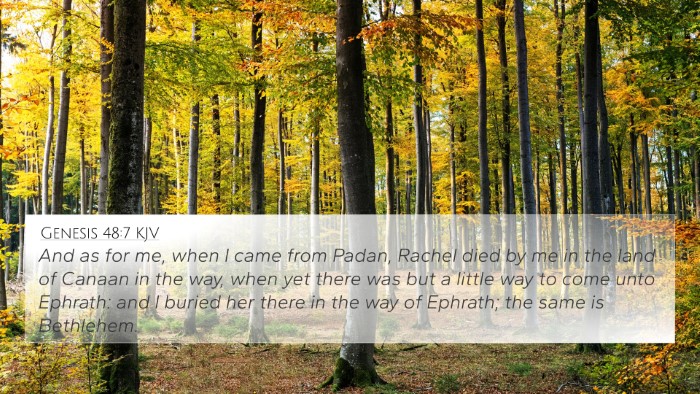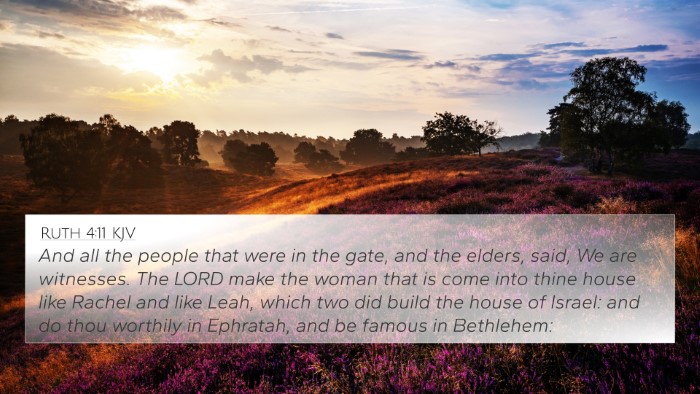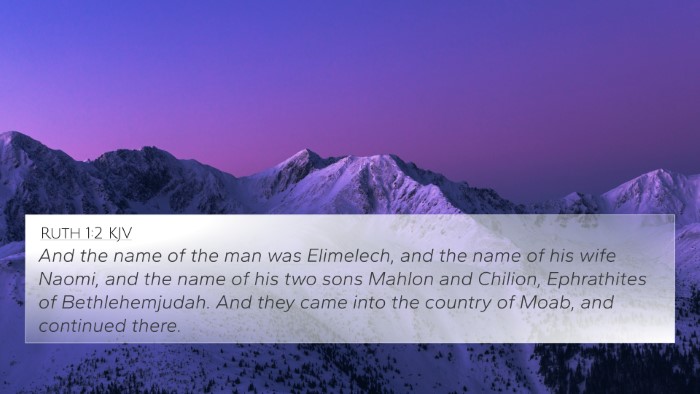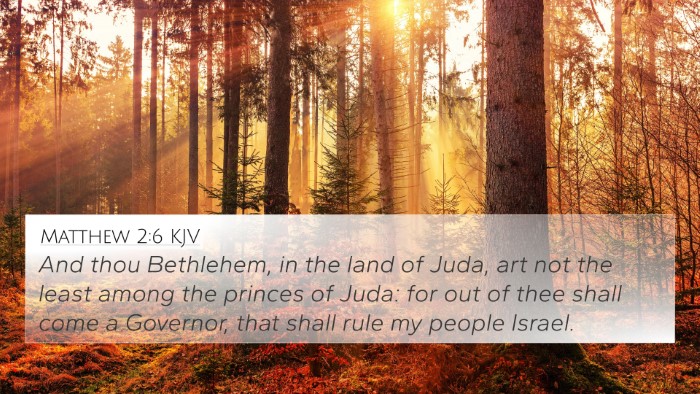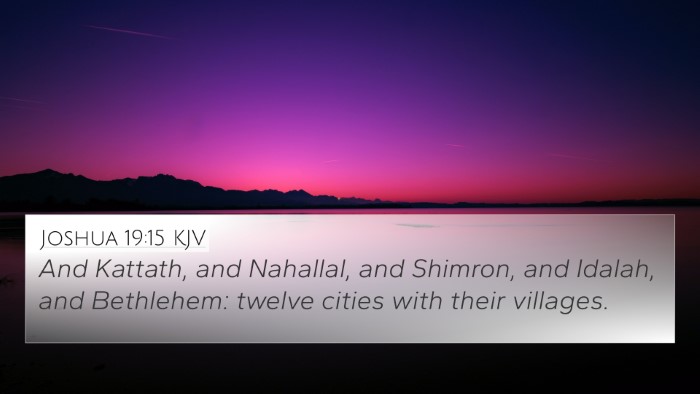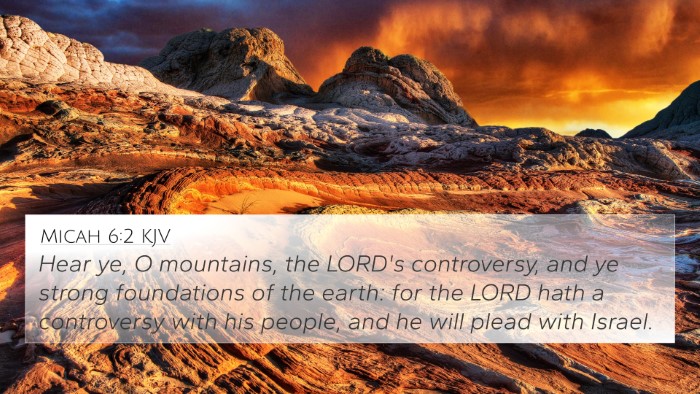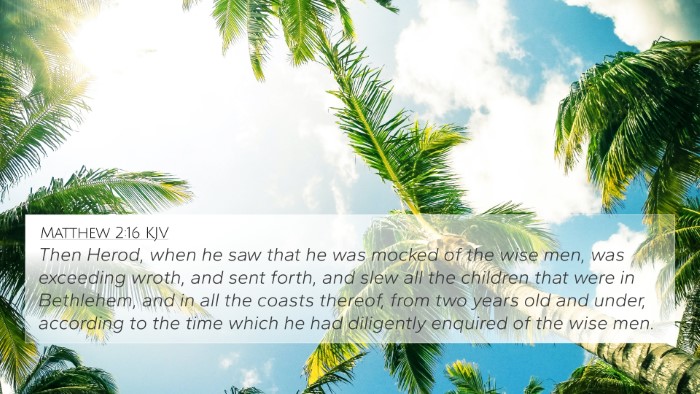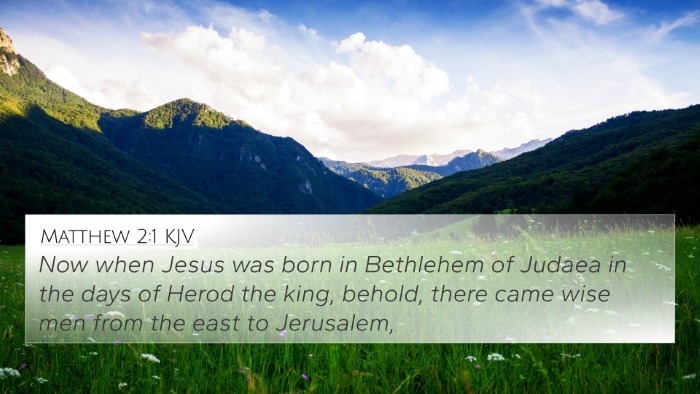Understanding Genesis 35:19
Genesis 35:19 states: "And Rachel died, and was buried in the way to Ephrath, which is Bethlehem." This verse marks a significant moment in the narrative of the patriarch Jacob and his family, highlighting themes of loss, memory, and the continuity of God's promises.
Meaning and Interpretation
This verse encapsulates the tragic death of Rachel, Jacob's beloved wife, during childbirth. The burial site near Ephrath, which is later known as Bethlehem, carries historical and prophetic resonance within the biblical text.
Commentary Insights
Matthew Henry's Commentary
Matthew Henry emphasizes the grief Jacob suffered from Rachel's death. He notes that Rachel was not just Jacob's wife but the mother of Joseph and Benjamin, two vital figures in Israel's future. Rachel’s demise reflects the pain that often accompanies the blessings of life, especially in the context of childbirth. Furthermore, the established burial site foreshadows Bethlehem's significance in biblical history as the birthplace of Christ.
Albert Barnes' Commentary
Albert Barnes points out the importance of understanding the geographical context of Rachel's death. Ephrath, identified with Bethlehem, becomes a pivotal location in both the historical and prophetic narratives of Israel. He also remarks on the sorrow that accompanies such a loss, indicating it serves as a reminder of the temporal nature of life and love. The mention of Rachel’s grave establishes a familial legacy, contributing to the rich tapestry of Israel's heritage.
Adam Clarke's Commentary
Adam Clarke provides a detailed examination of the implications of Rachel's death. He highlights the manner of her burial and its implications for Jacob and his family. Clarke also points to the emotional turmoil Jacob would have faced, exacerbated by the character of Rachel as the favored wife. Furthermore, Clarke suggests that Rachel’s burial near Bethlehem is not only geographical but also a theological statement, connecting the narratives and the hope of redemption inherent in the promise of the coming Messiah.
Cross-References and Connections
Genesis 35:19 connects with numerous Bible verses, enhancing our understanding through a deep dive into scriptural cross-referencing:
- Genesis 29:31 - Rachel's initial barrenness and God's consideration of her plight.
- Genesis 30:1-2 - The jealousy of Rachel and her subsequent demand for children.
- Genesis 35:16-18 - The context of Rachel giving birth to Benjamin and her subsequent death.
- Matthew 2:1-6 - The prophecy of a ruler coming from Bethlehem, linking back to Rachel's burial site.
- Jeremiah 31:15 - A lamentation over the loss of children, echoing the sorrow of Rachel’s death.
- Micah 5:2 - A prophecy stating that Bethlehem will be the birthplace of a significant ruler, linking back to Rachel's legacy.
- 1 Samuel 10:2 - Reference to Rachel's sepulchre, indicating its significance in Israel's narrative.
Thematic Connections
The story of Rachel and her death touches on various themes:
- The Pain of Loss: Rachel's death during childbirth illustrates the deep sorrow that can accompany the greatest joys.
- The Covenant Promises: The continued lineage through Jacob’s sons carries forward the promise made to Abraham and Isaac.
- God’s Providence: Throughout the narrative, God’s hand is seen in the births and lives of Jacob’s children, who play critical roles in the history of Israel.
- Historical Significance of Places: Places mentioned in Scripture often hold both immediate and prophetic significance, as seen with Bethlehem.
Practical Applications and Study Tools
This verse can serve as a point of reflection for those exploring:
- The importance of family and the grief of loss.
- Thematic study of life and death within biblical narratives.
- How to utilize cross-referencing tools to uncover deeper meanings in scripture.
- Engaging with a Bible concordance for further exploration of related verses.
Conclusion
Genesis 35:19 not only recounts a historical event but also serves as a rich text for understanding relationships, sorrow, and God's ongoing plan through the lineage of Jacob. By cross-referencing with both the Old and New Testaments, believers can gain insight into the continuity of God's promise and the significant themes of loss and hope that permeate the Bible.
